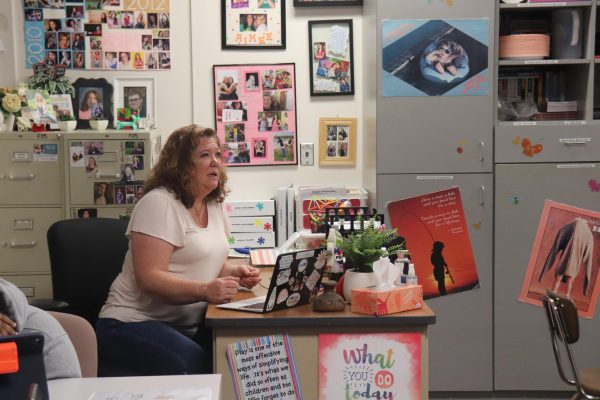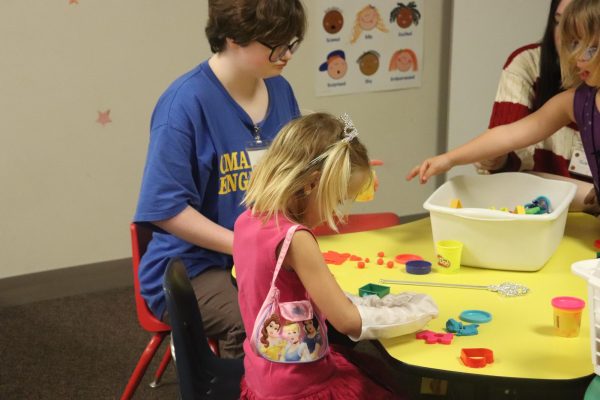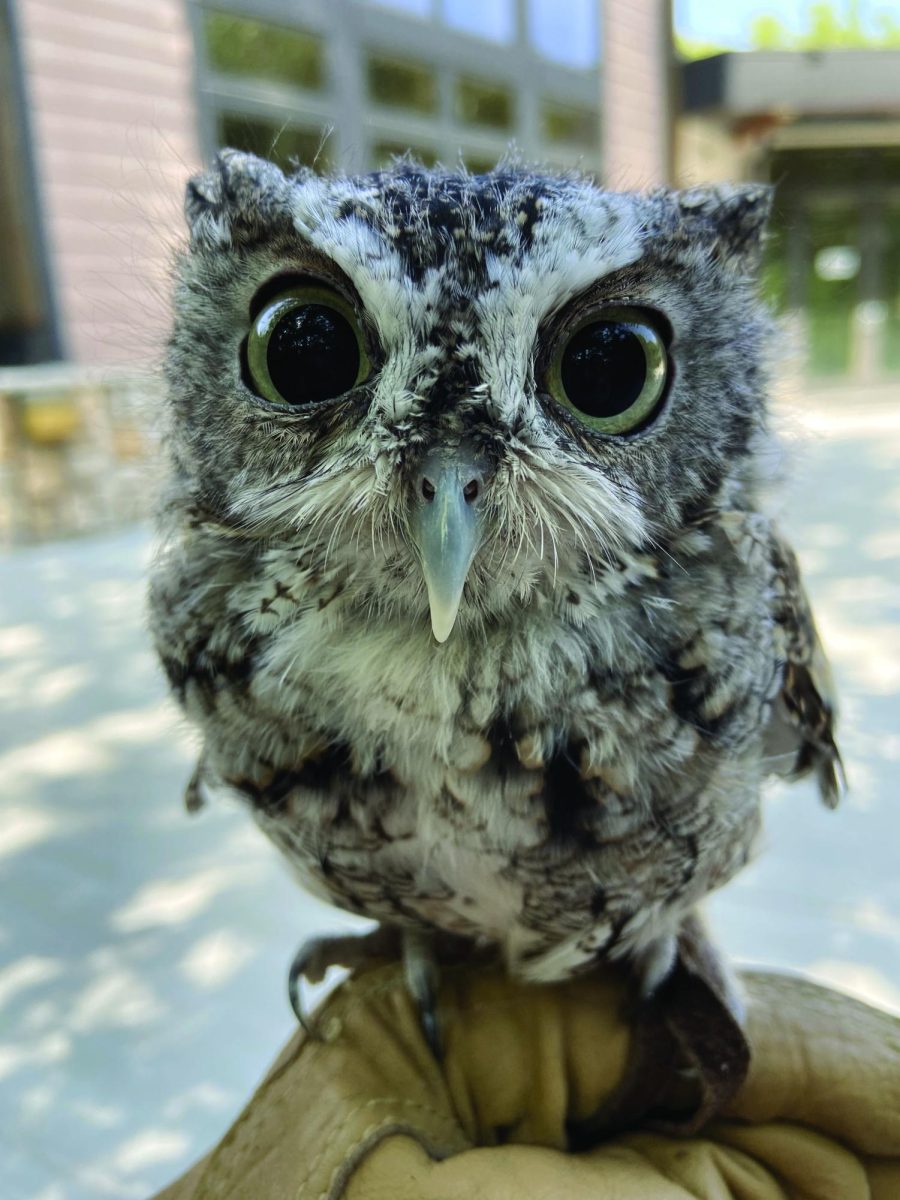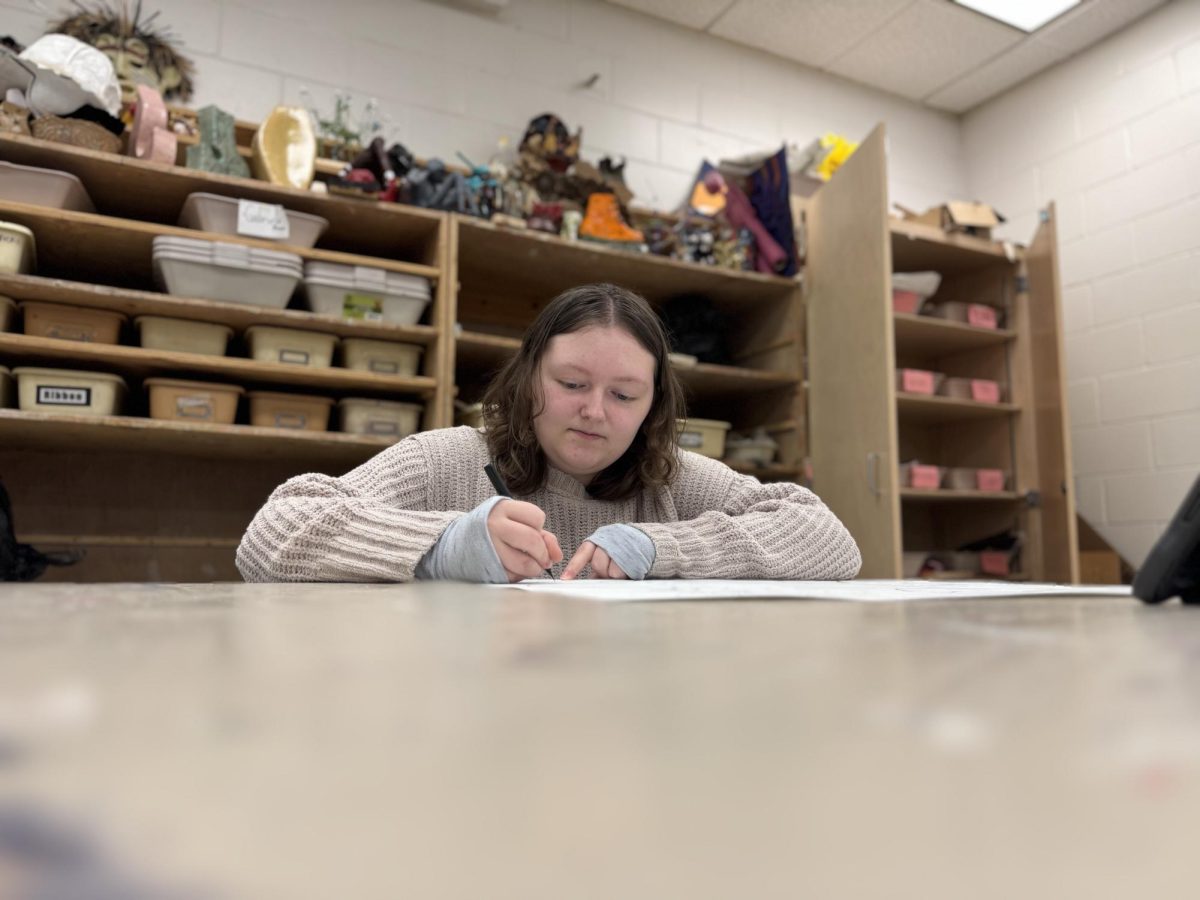Students at Bellevue East High School dive into the educational experience of empathy and essential skills while engaging with children in family science courses. BPS offers students hands-on experience and developing patience and empathy alongside capabilities dealing with children and infants.
“If you like working with kids, then it really helps you prepare for that and learn how to cope with the kids and make a connection with them,” sophomore Trinity Marr said. “I’ve always been interested in getting into teaching, so it definitely helped make that decision for me.”
The inclusion of the Preschool and Infant Development courses have been helpful to the students in more ways than one. It allows them to take knowledge with them into their adult life about early childhood development. It also helps with the preparation of having kids and making decisions about the future of their work lives.
“It teaches you how to work with kids and how to deal with certain situations, so you can definitely handle them a lot better in the future,” Marr said. “You never know if you’re gonna have a kid or if you wanna have a kid in the future so it helps you know how to take care of a kid in the future.”
According to Point Loma University, in preschool and infant development courses, students learn typical and atypical development to meet the needs of all different types of children and family situations. Students will have the ability to encourage children who are developing comfortably, aid those who are struggling, and help find the best environment for each.
“Infant development covers everything from pregnancy up to age 3,” family science instructor Carol Hill said. “It is pregnancy, labor and delivery, baby’s first year, and then ages 1-3. In preschool development, they learn about the development of kids ages 3-5 for the first half of the class. In the second half of the class, they run a preschool for kids ages 3-5. They work with the kids by teaching them and working one-on-one with them.”
The courses allow for students to have the opportunity to explore various teaching methods and child-rearing practices with the guidance of an experienced teacher. Through hands-on activities such as taking home an electronic baby, running their very own preschool, and completing projects, the students gain insight on the factors that influence a child’s learning and growth.
“In preschool development, you actually get to work with kids,” Hill said. “It is a different setting than just sitting at a desk and listening to a teacher or doing worksheets. A negative is that you have to really like kids. You cannot fake it. The infant class is not difficult. It is kind of enlightening. It is good for people who maybe want to work with infants in some way. I think a pro is taking the baby home for a weekend. A negative could also be the baby. It is not always all fun. I wish they could have the babies longer or more often. That is a negative for me.”
The classes invoke a sense of responsibility and compassion toward young children and babies. This responsibility instills a sense of desire in students to positively impact their lives through education, nurturing, and care.
“You learn how to connect with the kids,” Marr said. “I don’t have any cons about the class personally but it definitely helps you connect with kids.”
Even if students do not plan on working with children when they get older, having the knowledge and insight of how to interact with children can be beneficial. According to the National Association for the Education of Young Children, understanding how young children learn and grow will produce quality care giving. Taking a child development class in high school is crucial to learn how to engage with children and babies.







![Smile! On April 8, 2025 at Bellevue East High School, junior Kasen Warner signed with MH Equipment. MH equipment is going to pay for their two year degrees in skilled and technical trade areas and pay for a full set of tools. “This opportunity helps me because I'm gonna be shadowing people and learning more about how to do it [do things in his trade],” Warner said.](http://beaststudentmedia.org/wp-content/uploads/2025/05/IMG_4408-858x1200.jpg)
![Aim and Fire! On March 29, senior Christopher Lively prepares to shoot . The competition was held at the Bellevue Rod and Gun club.] “[It was] very windy and that caused me to do very badly. There were a few good sharpshooters and people who shot 15 out of 100,” Lively said.](http://beaststudentmedia.org/wp-content/uploads/2025/04/Resized_20250329_121914_1743269425901-1200x900.jpeg)